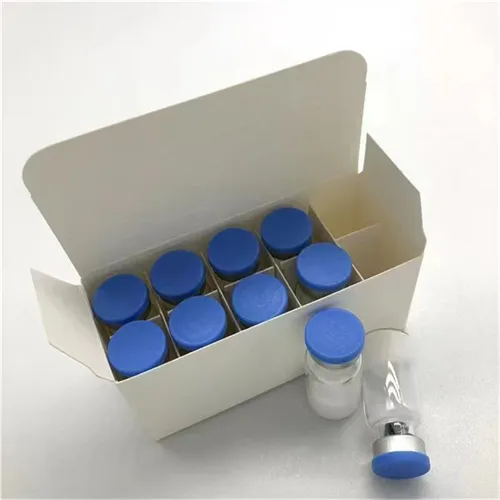Warning: Undefined array key "title" in /home/www/wwwroot/HTML/www.exportstart.com/wp-content/themes/1198/header.php on line 6
Warning: Undefined array key "file" in /home/www/wwwroot/HTML/www.exportstart.com/wp-content/themes/1198/header.php on line 7
Warning: Undefined array key "title" in /home/www/wwwroot/HTML/www.exportstart.com/wp-content/themes/1198/header.php on line 7
Warning: Undefined array key "title" in /home/www/wwwroot/HTML/www.exportstart.com/wp-content/themes/1198/header.php on line 7
- Afrikaans
- Albanian
- Amharic
- Arabic
- Armenian
- Azerbaijani
- Basque
- Belarusian
- Bengali
- Bosnian
- Bulgarian
- Catalan
- Cebuano
- China
- China (Taiwan)
- Corsican
- Croatian
- Czech
- Danish
- Dutch
- English
- Esperanto
- Estonian
- Finnish
- French
- Frisian
- Galician
- Georgian
- German
- Greek
- Gujarati
- Haitian Creole
- hausa
- hawaiian
- Hebrew
- Hindi
- Miao
- Hungarian
- Icelandic
- igbo
- Indonesian
- irish
- Italian
- Japanese
- Javanese
- Kannada
- kazakh
- Khmer
- Rwandese
- Korean
- Kurdish
- Kyrgyz
- Lao
- Latin
- Latvian
- Lithuanian
- Luxembourgish
- Macedonian
- Malgashi
- Malay
- Malayalam
- Maltese
- Maori
- Marathi
- Mongolian
- Myanmar
- Nepali
- Norwegian
- Norwegian
- Occitan
- Pashto
- Persian
- Polish
- Portuguese
- Punjabi
- Romanian
- Russian
- Samoan
- Scottish Gaelic
- Serbian
- Sesotho
- Shona
- Sindhi
- Sinhala
- Slovak
- Slovenian
- Somali
- Spanish
- Sundanese
- Swahili
- Swedish
- Tagalog
- Tajik
- Tamil
- Tatar
- Telugu
- Thai
- Turkish
- Turkmen
- Ukrainian
- Urdu
- Uighur
- Uzbek
- Vietnamese
- Welsh
- Bantu
- Yiddish
- Yoruba
- Zulu
Oct . 12, 2024 21:33 Back to list
Sustainable Production of Propylene Glycol from Renewable Bio-based Sources
The Emerging Role of Bio-Based Propylene Glycol in Sustainable Chemistry
In recent years, the demand for sustainable and environmentally friendly products has intensified across various sectors, particularly in the chemical industry. One notable development in this movement is the production of bio-based propylene glycol, an essential compound utilized in numerous applications, ranging from food and pharmaceuticals to cosmetics and industrial formulations. As the world grapples with the challenges posed by climate change and resource depletion, the transition towards bio-based alternatives is becoming increasingly pivotal.
Understanding Propylene Glycol
Propylene glycol (PG) is a synthetic organic compound, specifically a colorless liquid, with the chemical formula C3H8O2. It belongs to a class of compounds known as glycols, which are characterized by their hydrophilic nature and low toxicity. Traditionally, propylene glycol is produced petrochemically from fossil fuels, primarily through the hydration of propylene oxide. This conventional production method has raised environmental concerns due to its reliance on non-renewable resources and the associated carbon emissions.
What is Bio-Based Propylene Glycol?
Bio-based propylene glycol, on the other hand, is derived from renewable sources, often generated from plant materials like corn and sugarcane. The production process typically involves converting biomass into sugars, which are then fermented to produce the necessary building blocks for PG synthesis. This bioprocess not only reduces dependency on fossil fuels but also significantly lowers greenhouse gas emissions compared to conventional production routes.
Benefits of Bio-Based Propylene Glycol
The shift towards bio-based propylene glycol offers numerous advantages
1. Environmental Sustainability By utilizing renewable raw materials, bio-based PG production diminishes the carbon footprint. The lifecycle of bio-based products often results in lower emissions of greenhouse gases, contributing to global efforts in combating climate change.
bio based propylene glycol

2. Safety and Biocompatibility Bio-based propylene glycol is generally recognized as safe (GRAS) by the U.S. Food and Drug Administration (FDA) and often preferred for applications in food and pharmaceuticals. Its non-toxic nature makes it suitable for use in personal care products, where consumer safety is paramount.
3. Market Demand As consumers become increasingly conscious of the environmental impact of their purchases, the demand for bio-based products is on the rise. This shift in consumer preference is driving innovation and investment in sustainable alternatives, including bio-based propylene glycol.
4. Economic Opportunities The bio-based economy presents significant economic potential. By fostering developments in bio-refinery technologies and sustainable agricultural practices, regions can create job opportunities and stimulate local economies.
Challenges and Future Perspectives
Despite its advantages, the widespread adoption of bio-based propylene glycol faces several challenges. The cost of production remains relatively high compared to conventional methods, primarily due to the complexity of biomass processing and fermentation technologies. Investing in research and development is crucial to enhancing production efficiencies and reducing costs, making bio-based alternatives more competitive in the global market.
Furthermore, ensuring a reliable supply of sustainable biomass is essential. As demand for bio-based products increases, there is a risk of over-reliance on specific crops, which could lead to land-use conflicts and supply chain vulnerabilities. Therefore, diversifying feedstocks and improving agricultural practices to ensure sustainable growth will be vital.
Conclusion
Bio-based propylene glycol represents a significant advancement in the movement toward sustainable chemistry. With its potential to reduce environmental impact, meet consumer preferences, and foster economic growth, this compound stands at the forefront of green innovation. As technology progresses and challenges are addressed, bio-based propylene glycol may soon become a staple in various industries, ultimately contributing to a more sustainable future. The shift towards bio-based solutions is not just a trend but a necessary evolution toward a more responsible and resilient global economy.
Latest news
-
Certifications for Vegetarian and Xanthan Gum Vegetarian
NewsJun.17,2025
-
Sustainability Trends Reshaping the SLES N70 Market
NewsJun.17,2025
-
Propylene Glycol Use in Vaccines: Balancing Function and Perception
NewsJun.17,2025
-
Petroleum Jelly in Skincare: Balancing Benefits and Backlash
NewsJun.17,2025
-
Energy Price Volatility and Ripple Effect on Caprolactam Markets
NewsJun.17,2025
-
Spectroscopic Techniques for Adipic Acid Molecular Weight
NewsJun.17,2025

